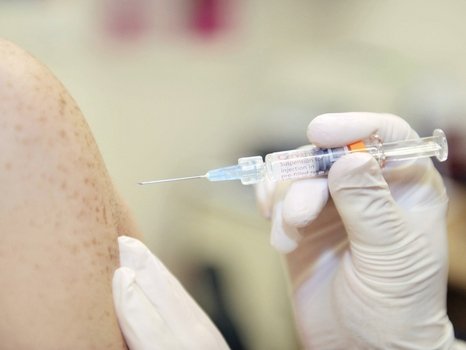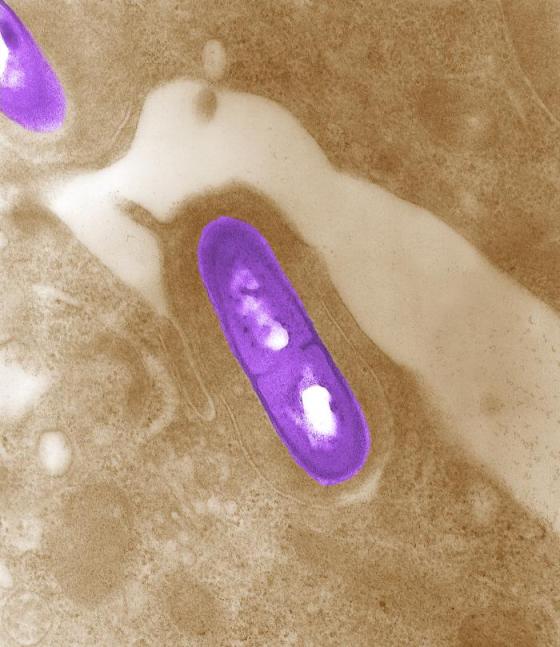Home Tags Posts tagged with "prevention"
prevention
As someone ages, their bodies weaken and it becomes more likely that they will fall and injure themselves. We all stumble occasionally, but for an elderly person, this can be serious. Whether they are in a nursing home or still living at home there are steps they can take to try and prevent this from happening.
In the US fall prevention alarms in nursing homes are being phased out. These alarms are important for elderly residents to be able to call for assistance if they need a drink, the bathroom or if they have an unexpected fall. Without them, they may end up feeling trapped and it can result in more falls if they try to do things themselves. When choosing a nursing home, you should make sure that they are still using an alarm system.
Exercise
Daily exercise has lots of benefits for elderly people. It will keep their bodies stronger and prevent falls. There are many exercises which can be done from their seats or someone should walk with them to make sure they are safe.
Exercise will also keep them feeling better in themselves and give them more independence. One fantastic new trend for people who are still able is aqua sports, as the water takes on any weight whilst eliminating strain – it allows people to do exercises that otherwise wouldn’t be possible. You may be able to find classes at your local gym, or you can find some ideas for exercise for elderly people here.
Home adjustments
If they are still living at home, then some adjustments should be made to their home. One idea could be to have everything on one level so that they don’t have to go upstairs. Handrails are also a fantastic option and can be installed in several places. Being able to sit down quickly could also prevent falling. A seat should be accessible in the shower and even in the kitchen.
Keeping the house tidy and free from clutter is also important as well as any trip hazards, such as removing any rugs. Grip flooring could also be installed such as carpet. Bathrooms and kitchens can be dangerous when wet so high-quality non-slip mats could be a great idea.
It may also be difficult for people to bend down low or reach high so some cupboards should be emptied, and the contents moved so everything is accessible.
Mobility aid
Some kind of mobility aid could make all the difference. A walking stick or walker, for example, they should discuss this with their doctor. This will keep them walking for longer.
Wheelchairs or mobility scooters are great if it means retaining independence for longer, but it also stops people from using their legs, which results in them further deteriorating. Therefore, walk assists should be used if possible.
Mobility aids could also include remote control chairs and beds to help people stand up, stairlifts and ‘reachers’ to help people to get things that are far away, high up or low down.
Clothes
Socks can be a big cause of slips, so opt for slippers with a strong grip. Furthermore, baggy clothes that can be caught on things are another culprit. Tight-fitting clothes are best.
Katie Couric has admitted a disproportionate reporting on HPV vaccine controversy during an episode of her show.
She said some of the criticism that the episode was too anti-vaccine and anti-science “was valid”.
“We simply spent too much time on the serious adverse events that have been reported in very rare cases following the vaccine,” Katie Couric wrote in a blog post published Huffington Post.
“More emphasis should have been given to the safety and efficacy of the HPV vaccines.”
The December 4 episode of Katie show had been criticized for promoting arguments from moms who said their daughters were harmed by the vaccines, including one whose child died. Katie Couric also interviewed HPV researcher Dr. Diane Harper, chair of family medicine at the University of Louisville. Harper had researched the vaccine and said its protection would wear off after five years.
Experts were quick to point out that scientific evidence didn’t jive with the opinions from Katie Couric’s guests.

Katie Couric has admitted a disproportionate reporting on HPV vaccine controversy
For the 57 million doses of the vaccine given out from June 2006 through March 2013, the Centers for Disease Control and Prevention’s Vaccine Adverse Event Reporting System (VAERS) has received at least 22,000 reports of adverse events in girls and women. About 92 percent of which were classified as non-serious. The other almost 8% of serious side effects included headache, nausea, vomiting, fatigue, dizziness, fainting and generalized weakness.
Katie Couric’s blog post devoted more space to the science. She highlighted the risk between HPV and cancer, citing estimates that each year about 26,000 Americans are diagnosed with a cancer caused by HPV.
She noted that while the vast majority of side effects to the HPV vaccine are not serious, she said she still felt the need to share the two patient stories on her show.
“As a journalist, I felt that we couldn’t simply ignore these reports. That’s why we had two mothers on the show who reported adverse reactions after their daughters had been vaccinated for HPV,” she wrote.
“One could hardly get out of bed for three years, and the other tragically died. There is no definitive proof that these two situations were related to the vaccine. Every life is important. However, the time spent telling these stories was disproportionate to the statistical risk attendant to the vaccines and greater perspective is needed.”
She added that as a cancer-prevention advocate, one of her goals was to affirm the importance of getting Pap tests and that people should not skip gynecological visits just because they got an HPV vaccine.
Katie Couric also expressed support for the vaccine, adding her own two daughters had been vaccinated.
The most ambitious goal of medical researchers is to find ways to prevent diseases. Methods to accomplish that goal do exist for certain illnesses, but are rare for others. Two recent medical studies on the molecular level exemplify the effort of the scientists to contribute to strengthening it against organ failure and to immunizing the body against viruses.
Avoiding a bad heart condition
In the US, 1.5 million people suffer from a heart attack each year of which one third is killed by it. Scientists of the Lund University in Sweden have now discovered a way to reduce the risk of a heart attack through a vaccination. The researchers have developed a therapy which leads to the production of antibodies attacking the accumulation of fat deposits in the arteries. Such therapies are often the result of comprehensive research collaborations on an international level, and also rely on the recommendation by the antibody supplier, which provides the appropriate kits for long-term clinical studies. The promising research results are hoped to lead to an introduction of the antibody therapy within the next five years.
A vaccine against cervical cancer
The vaccination Cervarix was approved in various European countries and the US between 2007 and 2009. It has been a great success as it immunizes the body against certain types of the Human Papillomavirus which were proved to be the cause of genital warts and cervical cancer by the German researcher Harald zur Hausen. Since its approval, many young girls and boys have got the three necessary injections and have thereby reduced their risk to fall ill to cervical, vaginal, penile, vulvae and anal cancer.

New results in the prevention of cervical cancer
In order to optimize the vaccine, scientists continue studying its effects in relation to the virus. It has been found out recently that even people who do not get the shot may profit from it through the phenomenon of herd immunity. It is related to the fact that vaccinated people do not transmit the virus to their potentially unvaccinated sexual partners and thereby help reduce the circulation of the virus. Hence, the virus may disappear or get extinct over time. This fact, however, should not prevent young people from getting vaccinated themselves. After all, one does not always know if a sexual partner is immunized or not.
On top of that, it has to be noted that there are still some oncogenic types of the Human Papillomavirus which are not covered by the current vaccines. It therefore remains the challenge of the scientists to develop serums to cover a broader range of HPV virus.
As FDA pulled cantaloupes from the shelves due to possible health risk, many of consumers may be left with questions about listeriosis, here are some facts from the U.S. Centers for Disease Control and Prevention (CDC) website. The listeriosis cases have been reported in five states in U.S.
What Is Listeriosis?
Listeriosis is a serious infection caused by eating food contaminated with the bacterium Listeria monocytogenes. It primarily affects older adults, pregnant women, newborns and adults with weakened immune systems. Rarely, persons without these risk factors can be infected.

Listeria
What Are the Symptoms of Listeriosis? How Is It Diagnosed and Treated?
A person with the infection usually has a fever, muscle aches, headache, stiff neck, confusion, loss of balance and convulsions often preceded by diarrhea or other gastrointestinal symptoms. Pregnant women typically experience flulike illness but infections during pregnancy can lead to miscarriage, stillbirth, premature delivery or infections in the newborn.
The CDC says that an estimated 1,600 people become seriously ill with listeriosis every year and of these people, 260 die. A blood or spinal fluid test to look for the bacteria is used to diagnose the infection. Antibiotics given promptly can cure the illness and prevent infection in the fetus. Even with treatment, some infections can lead to death especially in at-risk adults.
How Do People Get Listeriosis?
Listeria is found in soil, water and foods of animal origin. Listeria bacteria can live in a food processing factory for years. It’s been found in uncooked meats and vegetables; soft cheeses; processed meats like hot dogs and deli meat; and smoked seafood. Unpasteurized raw milk and cheeses are likely to contain the bacterium as well.
You get listeriosis by eating food contaminated with Listeria. Babies can be born with listeriosis if their mothers ate food contaminated with Listeria during pregnancy. Unlike most bacteria, Listeria can grow and multiply in some food in the refrigerator.
CDC Tips to Prevent Listeriosis:
• If you’re considered at risk, avoid high-risk foods and handling food properly.
• Thoroughly cook raw food from animal sources, such as beef, pork or poultry to a safe internal temperature.
• Rinse raw vegetables thorougly under running water before eating.
• Keep uncooked meats and poultry separate from vegetables and from cooked foods and ready-to-eat foods.
• Do not drink raw and unpasteurized milk and do not eat foods that have unpasteurized milk in them.
• Wash hands, utensils, countertops and cutting boards after handling and preparing uncooked foods.
• Consume perishable and ready-to-eat foods as soon as possible.
• Be aware that Listeria can grow in foods in the refrigerator.
• Clean up spills in your refrigerator right away.
• Clean the inside walls and shelves of your refrigerator with hot water and liquid soap and then rinse.
• Divide leftovers into shallow containers for fast, even cooling.




